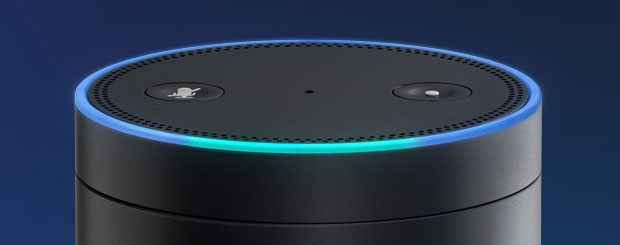Amazon on Wednesday rolled out its Music Unlimited cut-rate subscription streaming service, available on its Echo, Echo Dot and Amazon Tap devices for as little as US$4 a month for a single device.
Setting a low-entry price point “is a logical move, given that the company has invested heavily into the AI and voice recognition powering Alexa in its move to catch up to Google in those areas,” said Paul Erickson, senior analyst for the connected home at IHS Markit.
Amazon “needs to incentivize potential Echo owners as much as it can,” he told TechNewsWorld.
Amazon Music Unlimited also will run on Amazon Fire devices, Sonos devices, Windows and Mac computers, iOS and Android devices, and on the Web.
Pricing Options
Running the service on multiple devices, including the Echo and Tap family, will cost $8 a month for Amazon Prime members and $10 a month for others.
Individual plans will cost Amazon Prime members $80 a year if paid annually. There’s no discount for non-Prime members.
A Family subscription plan that will allow up to six family members simultaneous access to the service for $15 a month is in the works.
The Family plan will cost $150 a year if paid annually. There will be no discount for the Echo plan.
That’s roughly on par with what the competition charges, noted Michael Jude, a program manager at Stratecast/Frost & Sullivan.
The service can be operated through Alexa, Amazon’s AI-based voice-controlled assistant.
“If you want a sense of the future of voice-controlled music, go ahead and ask Alexa for a free Music Unlimited trial and play around on your Echo,” suggested Amazon CEO Jeff Bezos.
Amazon Music Unlimited currently is available in the United States. It will be available to customers in the UK, Germany and Austria later this year.
Music, Music, Music!
Amazon Music Unlimited “complements Echo and Alexa with a music service in the vein of Spotify or Apple Music,” observed IHS’ Erickson.
“It will also [let] Amazon more tightly integrate bespoke features that will only work between its service and Alexa that won’t be possible via third parties such as Spotify,” he pointed out.
This will make Echo “a way for Amazon to take a bigger total revenue bite per customer and increase lock-in,” Erickson said.
Amazon also unveiled a new music app for iOS, Android and the desktop. It has a new interface, along with features including Home, which showcases Amazon Music editors’ selections; Recommended, which lists personalized music suggestions; and Now Playing, which offers lyrics synchronized with the music currently playing.
Part of a Bigger Plan
The Echo and Dot “are basically portals for content and for retail sales,” Frost’s Jude told TechNewsWorld. The discounted plan for Amazon Music Unlimited on those devices “seems consistent with pushing that objective.”
Other goals might be to push streaming music sales, boost the sale of Echo and Tap devices, and further penetrate the connected living room and connected home market.
At a total that exceeded $1 billion, streaming music revenues boosted the U.S. music industry into the black in the first half of this year, the Recording Industry Association of America reported.
On-demand streaming accounted for 51 percent of the total listening time of 15-to-19 year-old participants in a U.S. study conducted this spring by Lots of Online People and the Music Business Association.
Music Unlimited “does round out the Alexa-plus-Echo proposition with an in-house music service that allows exclusive differentiation and tighter integration than what’s possible with current compatible services,” Erickson said.
However, “its impact on Alexa-plus-Echo’s prospects versus the wider-ranging reach and capabilities of Google is substantially more limited,” he maintained.
Google Assistant will be superior to Alexa in everyday presence and usefulness, Erickson suggested, thanks to Google’s investments in language recognition, machine learning and AI, as well as its commitment to using Assistant as its interconnected, continuously personalized voice interface across all of its platforms.























































